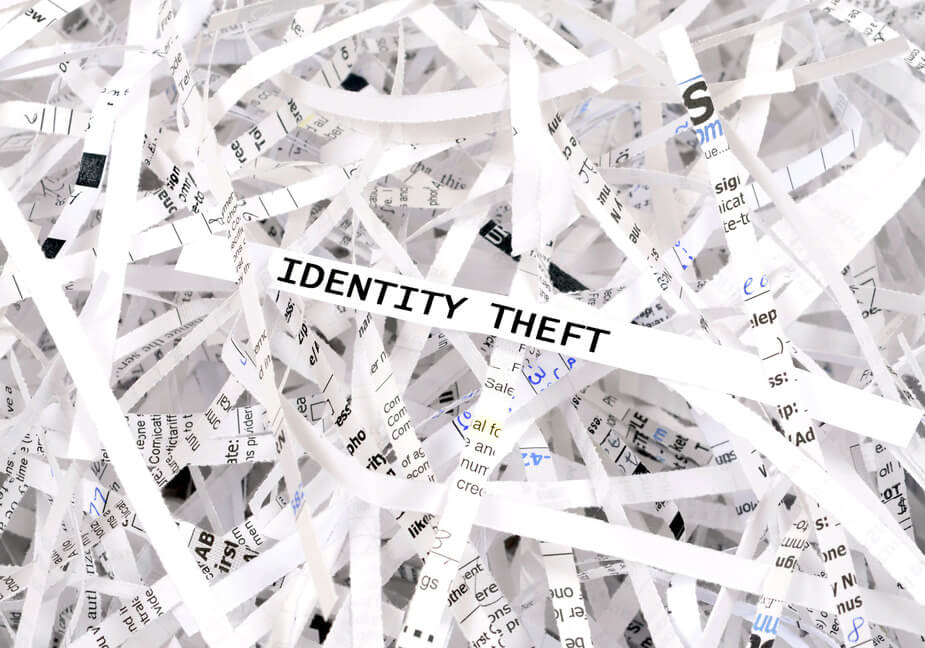
The world just isn’t like it used to be. More people are shopping online and fewer are carrying cash even for small purchases. Seemingly everyone carries a smartphone. The concept of the Internet of Things – that is, the way everyday items like thermostats, cars, and even refrigerators can all be connected to the internet – is growing like wildfire. Soon, there may be no aspect of our lives that isn’t somehow linked to an online world.
While these technological advances are innovative and exciting, they open us up to new risks. If our personal information and identity are compromised, the price of this convenience can often be our financial security.
Identity Theft Can Happen to You
According to the Bureau of Justice Statistics, about 7% of persons over the age of 16 were victims of identity theft in 2014. About 86% of those individuals experienced a fraudulent use of their existing bank or credit card information. Regularly monitoring your accounts for suspicious charges can detect theft early, but once your information is in the hands of a criminal, it may set off a ripple effect that can damage your credit for years to come.
Thieves can steal your credit or debit card information in a variety of ways. They utilize data hacks at retailers, credit card skimmers at ATMs or unmanned card terminals, and malware unknowingly installed on your computer. From there, they can access your personal data, set up new credit and bank accounts, create new utility or mobile phone accounts, or take out loans in your name. In fact, they may set up an entirely new life by obtaining a driver’s license or other identifying documents with your information and their picture – all potentially at your expense.
Children Are at Risk
It may seem like children without credit cards would be immune from identity theft, but this is not the case. One study indicates that children are actually 51 times more likely to have their identities stolen simply because the theft may go unnoticed for years. In many cases, it is only detected when the child becomes an adult and begins applying for their own credit. A Social Security number can be taken and lines of credit opened, racking up debt in the child’s name. Undoing that damage and repairing the child’s credit history is just as difficult as it is for an adult.
Thieves Target Seniors
The FBI warns that senior citizens are often specifically targeted for a number of reasons. The thieves are after retirement savings, home equity, and/or a victim with good credit. They are thought to be less aware of the growing trends such as phone scams and therefore more susceptible to con artists. They may be more easily enticed to buy products or pay for other fraudulent things, opening them up to having their identities stolen.
You Can Protect Yourself
As difficult as it may seem to protect yourself, there are some simple steps you can take to safeguard your identity, as well as the identities of those you love.
- Check your credit reports with the three credit bureaus – Experian, TransUnion, and Equifax. You’re entitled to one free report each year. Review each carefully for accuracy and up-to-date information.
- Check your child’s credit history. The three credit bureaus should not have a report if no accounts have been opened in the child’s name.
- Monitor your accounts regularly to identify theft or fraud early.
- Avoid using public computers. If you do need to use one, do not log into your bank or credit accounts.
- Talk to your college age child about protecting their personal information, including securing devises, limiting use of public Wi-Fi, the importance of strong passwords, and skipping pre-approved credit card offers.
- Make sure your passwords are strong, too!
When Careful Isn’t Enough
It can seem like a daunting task to stay on top of everything and protect your identity, too. You may want to consider enrolling in a program that can monitor your personal information. There are a variety of services out there, so do your research.
Make sure you’re getting a comprehensive service that looks not only at your credit report, but also monitors for things like unauthorized change of address, applications for payday loans, and changes in court records in your name. Make sure whoever’s looking after you can also help in the event of identity theft by providing identity theft insurance and a strong identity restoration service.
It’s About Protecting Your Life
All the new gadgets and technology offer plenty of convenience in our modern world. You’re busy, but that doesn’t mean you should be lax in protecting your personal information. A compromised identity can have devastating effects, robbing you of your hard-earned savings, your irreplaceable time, and your established reputation.
It’s worth the time to protect your life.
All insurance policies are different. Be sure to review your insurance policy for specific information about coverages available to you. Nothing in this post is meant to suggest a guarantee of coverage.
